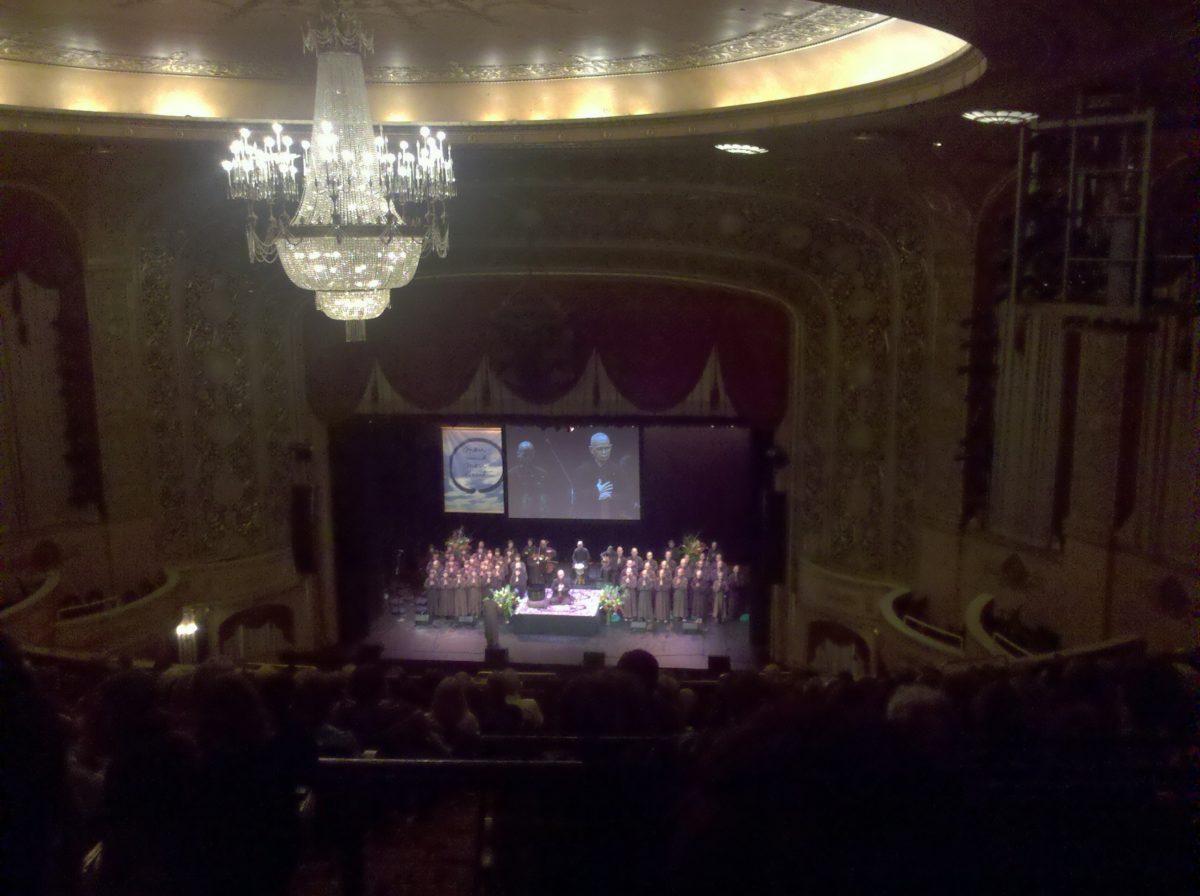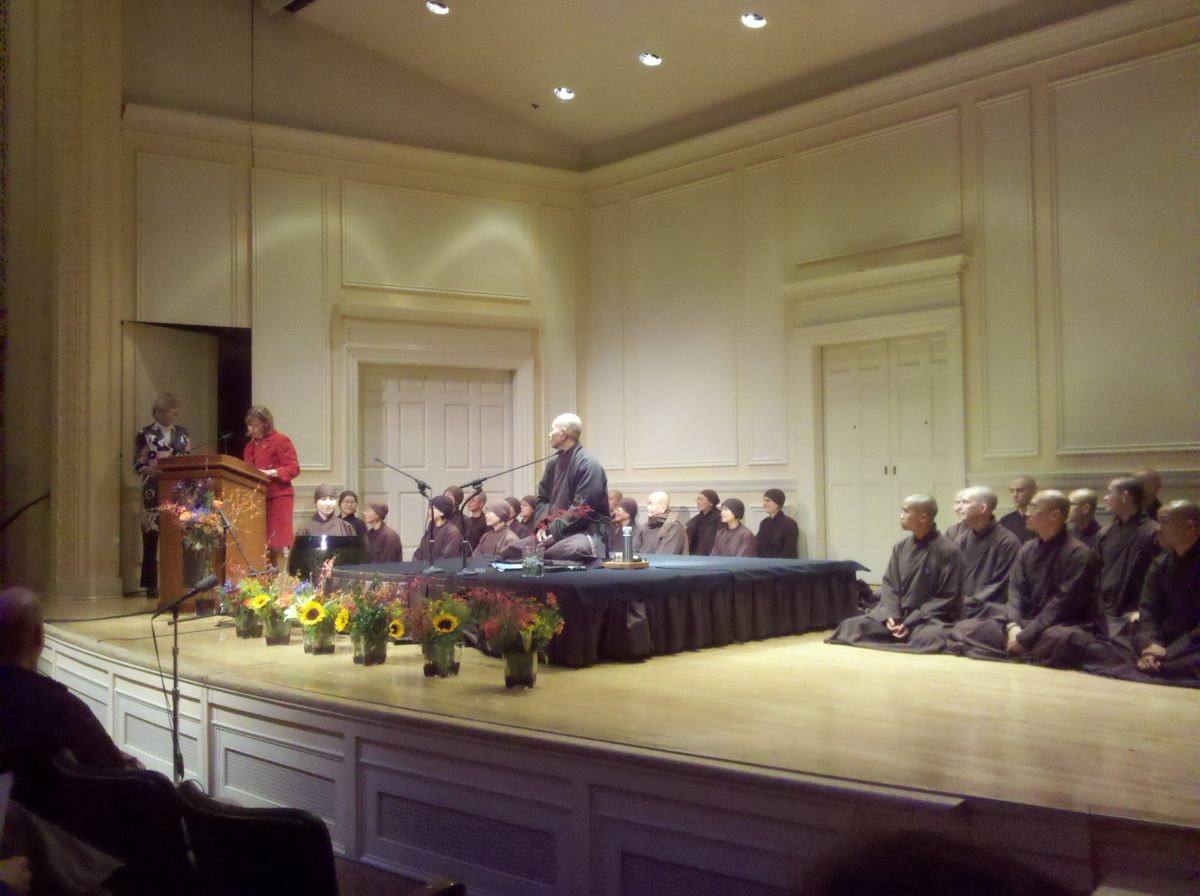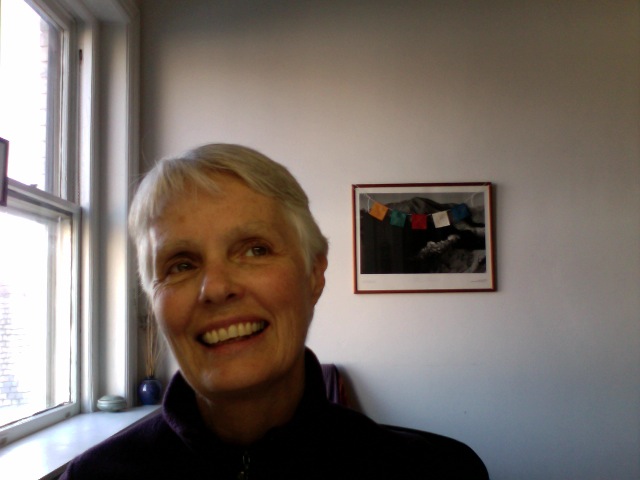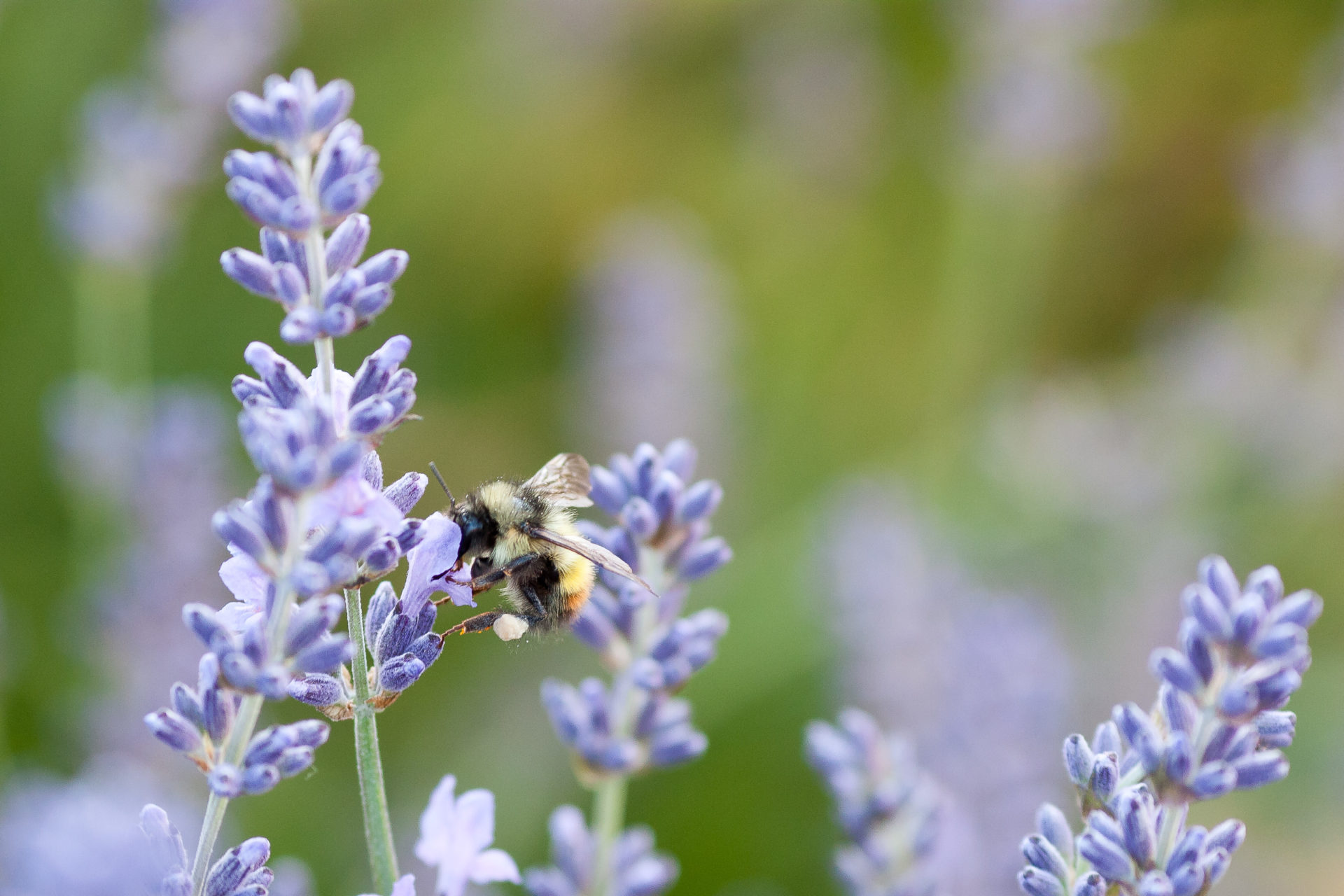A Retreat for the U.S. Congress
By Susan Hadler

Word came from Sister Peace that Thay and the Plum Village Sangha would visit Washington, DC toward the end of their North American tour in October 2011. Thay would offer a talk at the Warner Theater, sponsored by Omega Institute, and then a talk at the Library of Congress,
A Retreat for the U.S. Congress
By Susan Hadler

Word came from Sister Peace that Thay and the Plum Village Sangha would visit Washington, DC toward the end of their North American tour in October 2011. Thay would offer a talk at the Warner Theater, sponsored by Omega Institute, and then a talk at the Library of Congress, followed by a special overnight retreat for members of Congress. The Faith and Politics Institute, the United States Institute of Peace, and the Fetzer Institute would sponsor the retreat and the talk at the Library of Congress.
Thay had offered a retreat for Congress in 2003. The Washing- ton Mindfulness Community (WMC) and the other area Sanghas had provided support in a multitude of ways. Sister Peace had been part of that effort (before she was Sister Peace). Now she was inviting the North American Sangha to bring mindfulness into Congress by writing letters and visiting members of Congress, inviting them to attend the talk and retreat.
I was not part of the organizing team in 2003. I had recently scaled back my professional life so that I could deepen my practice and have more time to sit, walk, and enjoy the trees and the sky, my family, and the Sangha; to write, play my flute, and paint. At that time, I had very little inner space, and I needed time to slow down, to come home to myself, and to heal. I needed to take one breath and then another. The Sangha supported and nourished me deeply during that time, never demanding or expecting more than I could be or give.
Sitting in silence with others on Sunday evenings, followed by true sharing of our practice, strengthened my whole being and gave me the space to be with myself in the midst of being with others, something that I had seldom experienced before. By 2011, I had changed. I was no longer fiercely guarding my privacy and my need for silence. I understood the need to mindfully reach out to Congress.
Early in September, Sister Peace invited the WMC to organize visits to Congress and to support the Plum Village Sangha when it arrived in DC. Having no plan except to follow the guidelines on the Plum Village website for contacting Congress members, I sent out an announcement for a meeting. All the rest flowed from deep Sangha energy. Friends came to the meeting. Joey designed an invitation and Abbie printed it. Local Sanghas contributed funds to purchase seventy-five copies of Thay’s new book, Peace Is Every Breath, to give to Congress members.
Some of us met in a friend’s Congressional office with books, invitations, letters, and a list of members of Congress to visit. After stopping to breathe so that we could walk the marble halls with mindful steps and deliver invitations with Buddha smiles, we began to open the heavy doors and greet our new friends, the staff who support the members of Congress.
Almost everyone was receptive. When we spoke of Thay’s understanding of their stressful, pressured, busy lives, most of them laughed and said they sure could use the retreat. As we left the offices, many were already beginning to read Peace Is Every Breath. We were heartened. We felt Thay’s presence as help arrived exactly when and how we needed it.

Sangha energy continued to flow like a river of mindfulness. Sangha members met with Sister Peace to plan ways to support Thay and the Plum Village Sangha. One member of the WMC, a caterer, volunteered to make dinners for the monastic Sangha on the evenings of the talks. Another member designed and printed cards with information about area Sanghas to be handed out at the talk. At the Warner Theater, some Sangha members handed out programs and fliers while others sold books for Parallax Press. Thay’s Dharma talk was like good medicine. Tiredness vanished from people’s faces as Thay led them to a deeper, more spacious place where they could breathe and know they were breathing.
Knowing that only plastic flowers would be available at the Library of Congress for Thay’s talk the following night, I asked Skip at Omega if we might rescue any unwanted flowers for that event. Abbie volunteered to take the flowers home and bring them to the Library of Congress the next night. Smiling, I watched Abbie drive away with huge bunches of flowers filling her car. Early the next day at the Library of Congress, Sister Peace and I found out that the flowers would have to go through an off-site inspection lasting an hour and a half. Laughing at the impossibility of this, we called Abbie, who decided to prune the flowers and arrange them into smaller security-acceptable containers.
Hours before the talk began, we were informed that Thay had requested that each person receive a copy of the new Five Mindfulness Trainings at the door. We shared this news with the woman guiding us through the details of the evening at the Library of Congress. She offered to help us print 500 copies. When we delivered them, we found out that the Faith and Politics Institute had also made 500 copies. Later, I passed the fliers on to Sister Chan Khong to use at the Day of Mindfulness in New York. I was learning that everything works out beautifully and I don’t really need to worry.
Entering the auditorium, I noticed the flowers standing like monks lined up in front of Thay, adding color and simplicity. I listened to Thay encourage us to come home to ourselves, listen deeply to each other, and nurture clarity, compassion, and courage through the concentration that mindfulness practice generates. I listened with the ears of a person in the midst of a divided situation and felt hope. I know that Thay’s way works because of my experience with my own family: sitting and breathing and sending peace to myself and to each family member from whom I was estranged, I gradually shifted my heart and my perspective until full reconciliation happened.
The members of Congress and guests seemed to be deeply affected by Thay’s talks and by the collective energy of mindful- ness at the retreat. They were completely engaged and appreciative of the practice. One said to me how much she enjoyed eating mindfully in silence, and that she would take this home with her. Another came to the retreat quite tense, and I noticed how much more relaxed and young she looked over time. I understood the depth of these seemingly simple changes.
Retreatants were eager to learn ways to communicate effectively with each other in Congress and the nation. I left the retreat aware of suffering caused by lack of understanding mutual needs. I also felt a deeper appreciation of the Five Mindfulness Trainings, a quintessential ethical and spiritual guide for living a life of meaning and connection with oneself and all other beings.
I became aware of many fruits of the practice. As the oldest daughter of seven children whose father was killed in war, I know how to respond and to take care of others. But this time, I saw the difference between responding out of desperation and necessity and responding out of inner strength. In the past, I often gave of myself heedlessly, neglecting my well-being until sickness made me stop and rest; or I would protect myself, holding back to avoid becoming exhausted. This time, even as I dealt with the challenges of planning and organizing, I was aware of the pleasure of supporting the Sangha. Another delicious fruit was experiencing, over and over again, the joy and sturdiness of true Sangha generosity.

Susan Hadler, True Lotus Recollection, practices with the Washington Mindfulness Community in Washington, DC.

